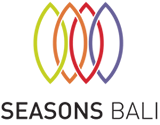For a long time, many believed that addiction was simply a matter of personal choice.
They thought of it as something that someone could stop if they just had enough willpower. You might hear phrases like “they just need to try harder” or “they’re choosing that lifestyle.”
However, as science and medicine have evolved, so has our understanding of addiction.
In recent decades, a growing number of studies have completely changed the perception of addiction among health practitioners. It is not just considered a ‘bad habit’ or moral failure. It is a complex disease affecting the mind and body.
Many doctors, psychologists, and neuroscientists today would tell you that addiction is a much more complicated subject than once thought. It’s not just about the substance or the behaviour. But it’s more about what it does to the brain’s most basic functions of survival and decision-making. Some people also believe it’s related to emotional and psychological dependency, which is incredibly hard to stop without proper support.
Addiction is considered a disease because it exhibits three core traits:
- It has a lifelong course marked by frequent relapses and cross-addiction, including typical behavi͏oral changes associated with the disorder.
- Like other chronic medical conditions, genetics can be a contributing factor in who can become addicted.
- There are good medicines that work by blocking the pleasurable effects of drugs and reducing cravings for these substances.
Like other chronic illnesses, addiction requires a compassionate, science-based approach to healing and not shame or judgment.
Society’s Opinion
For much of the 20th century, the dominant narrative around addiction was painfully harsh. People who struggled with drugs or alcohol were often labelled as morally weak, dangerous, or even criminal. Rather than being seen as individuals in pain, they were portrayed as societal failures or those who had made bad choices and deserved the consequences.
Unfortunately, while we’ve made some progress in shifting that perspective, many of those outdated views still linger in modern society.
As recently as 2014, a study carried out by the Johns Hopkins Bloomberg School of Public Health found that stigmatisation of addiction was still quite prevalent.
The study revealed that a big percentage of the general public held the opinion that sick addicts should be refused basic provisions like health insurance coverage, housing assistance, and employment protection, most especially if they are seeking treatment in a rehabilitation facility. This stands in sharp contrast to how the public views mental health.
Generally, there is better support for those with mental health issues. With the diagnosis of addiction, compassion is somehow transformed into condemnation.
Part of it comes from the media and cultural images in people’s minds as representatives of addicts.
For years, the typical image of an “addict” is that of a poor and homeless person, usually someone from a marginalised ethnicity living in a bad neighbourhood. Unfortunately, these reinforce dangerous stereotypes that are far from reality.
These perceptions allow society to dehumanise those experiencing addiction, making it easy to label them as ‘others’ and not a person who could be a friend, colleague, or even family member.
But the reality is changing, even if public perception hasn’t changed so far. Many of the drug users today do not correspond with the older stereotypes.
As a matter of fact, there has been an increase in the number of middle-class white Americans residing in suburban neighbourhoods who are struggling with addiction.
Quite often, dependence on such medications starts from something that seems so harmless, such as prescription medications like painkillers administered after surgery.
Such a medication can become addictive. Hence, when the prescription lapses or becomes financially out of reach, some go to cheaper and more available alternatives like heroin or fentanyl.
Still, the stigma remains. Such stigma is much more than just words that are derogatory – they can have tangible and enduring effects.
People may hesitate to seek help because they are fearful of what they will be labelled. They may lose their jobs, their homes, or even their children just because they asked for a little help. Families will suffer quietly, scared about what others will say once the truth comes out.
If we are to move forward as a compassionate, educated society, we must begin by changing the narrative. Addiction is certainly not a character flaw—it’s a medical condition, and as such, it should receive the same care, respect, and resources as any other chronic illness. The more we humanise those struggling and let go of old stigmas, the better chance we have of creating a world where recovery truly becomes possible for everyone.
What Should You Believe?
The question of whether addiction is a disease or a choice is one that continues to spark debate, both in academic circles and around dinner tables, in recovery groups, and within families. And while experts bring the data and research to the table, your personal experience will also be a factor. It can shape how you perceive addiction and how you can support yourself and others suffering from it.
Most people believe that cancer, diabetes, or even heart disease are not random, but, as per medical science, have some risk factors at work, like genetics, diet, or even lifestyle choices. And in this context, addiction is not all that different.
If you hail from a family with a history of substance abuse, your chances of becoming addicted are believed to be much higher.
This does not say that you are doomed, but it might caution you a bit more.
Some people would never ever take a drink or use drugs just because they know their family history makes them that much vulnerable to the risks associated with it. That in itself would be great awareness and a form of prevention.
If addiction were to be considered a disease, would that not immediately lead to the path of treatment, as with any other chronic illness? That way, people can seek medical help, therapy, and support, all without the least tinge of shame. It reminds us that if chemical changes do create compulsive behaviour, then perhaps recovery is not just a question of willpower but rather about healing, physically and emotionally.
On the other hand, others see it as a matter of choice — whether to use, to continue using, and to finally stop it. From this perspective, recovery can be defined as taking responsibility for making choices and creating a better environment.
Addiction in this context is less biological and more behavioural. Such factors as peer pressure or emotional trauma, or just having a chaotic home life, can all lead to the first choice, but they don’t have to define the outcome.
The truth may actually be somewhere in between. Addiction might be equal to being ill, as well as a product of circumstances. What matters most is that your belief system helps you understand the condition with empathy and clarity.
Whether you lean toward the disease model or the behavioural model, what’s most empowering is recognising that recovery is possible.
Ultimately, how you see addiction can affect how you approach it – in yourself, in your loved ones, and in your community. Knowledge gives you tools, and understanding gives you compassion. And in the fight against addiction, we need both.
Transformation Starts Here
Making the decision to get help for addiction is not something that is easy to do. It may, in fact, be one of the hardest things a person will ever do and certainly one of the bravest. Yet, it remains one of the most hopeful actions a person can take: taking that first step toward recovery.
If you are reaching out for yourself or someone you love, know this: it can change, and healing can begin today.
Remember, addiction is not who you are. It is something that has been part of you, but not the whole you.
Somewhere deep inside, you are still the person wanting peace, security, and a life without substance or destructive habits.
And that part of you deserves to be listened to. Recovery is not just stopping the behaviour – it is also about regaining your self-worth, relationships, and finding the fullness of life’s joy once again.
We know exactly what you’re going through. Here at our centre, we have helped people from all walks of life over the past two decades.
We’ve seen how folks can change with the right support. It’s not just the addiction that we treat here, but the person behind the addiction. Our compassionate team creates a safe, respectful environment where healing truly begins
Whether it is for you or for someone you care about, this is important. Maybe this is the beginning of something new: a life with more clarity, connection, and control. You do not have to do it alone.
As pioneers in addiction treatment across Southeast Asia, we provide healing in a world-class setting. Whether you are already certain about getting help or still just considering it, talk to us now! Your path to recovery may begin today.





